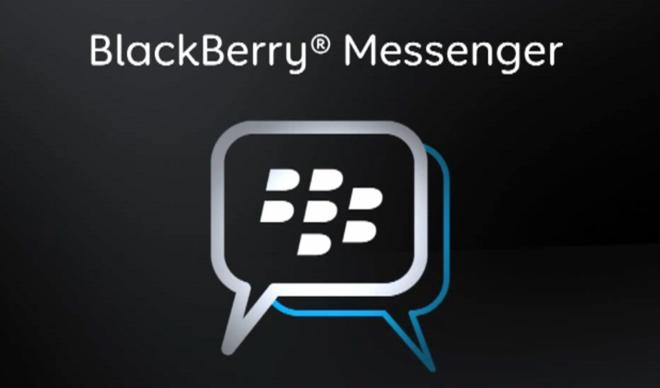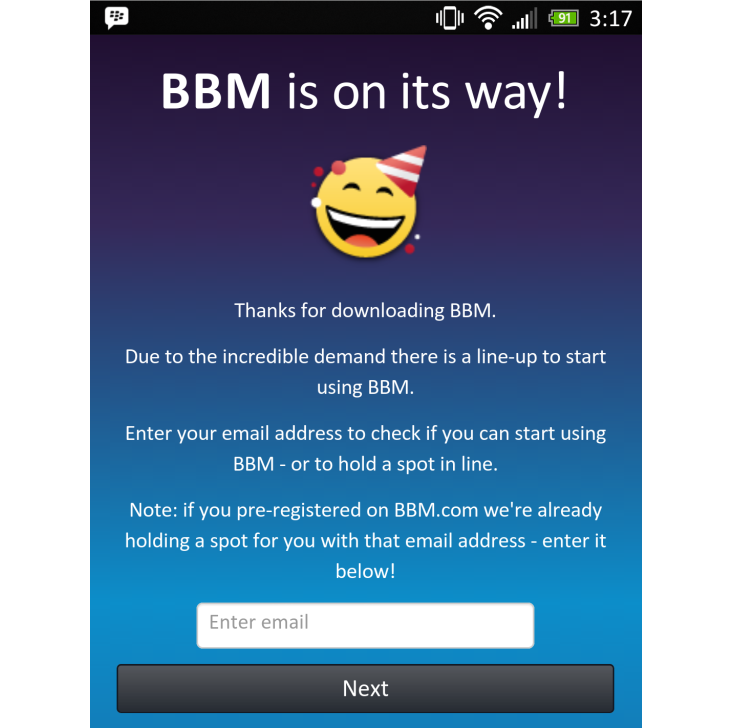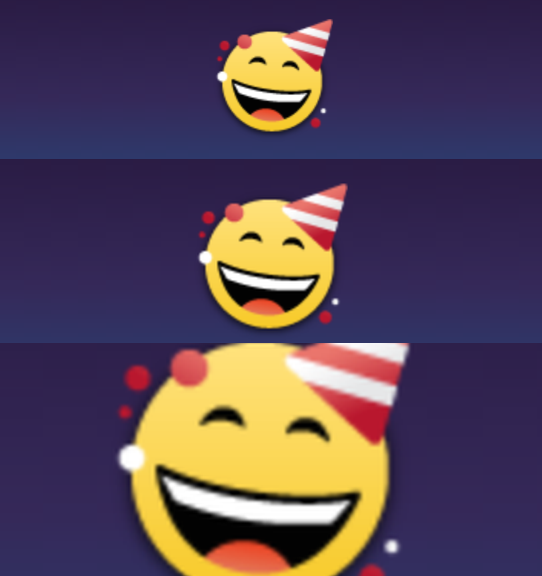
BlackBerry has had quite an interesting year. What started out as an optimistic fresh start into the modern smartphone world with BlackBerry 10 ended with the disappointing realization that it was too little too late for BlackBerry 10 to make an impact when compared to today's expectations of what a smartphone should have. As we figured out, quality is more important than quantity, and while BlackBerry may have been able to produce over a hundred thousand applications many of them were nothing short of being blatant fillers to mark up the count of applications available in the BlackBerry App World. A good smartphone OS is more than just a pretty interface.
But BlackBerry has always had something a little more up its sleeve when it comes to what made the devices so enticing for business and personal use alike, and that's BlackBerry Messenger. BBM was revolutionary in its day because of its advancements in messaging in cell phones. Even when other companies started moving in on the idea, like Apple's iMessage, BBM still held strong as it had such a large userbase. But as more people started shifting away from BlackBerry and moved on to more developed mobile platforms, BBM was starting to lose its shine, even with existing users.
That's not to say that BBM is any less worthy of being used as an instant messaging program, because it's still a pretty good one in my opinion. But gone are the days where you could sell a BlackBerry to somebody simply because it had BBM - other platforms have replacements for that now, and for the most part, people are going to be more interested in apps than anything else. Since BlackBerry 10 couldn't bring what most people wanted to the table, BlackBerry continued to lose support to the competition.
It would be a shame to see all of BlackBerry go to waste, and although the OS is not completely dead it likely would have been soon if something wasn't done about it. The small percentage of people who stuck with BlackBerry all of this time would have likely left sooner than later with so many people switching platforms. So perhaps if you can't bring the people to BlackBerry, maybe they can bring BlackBerry to you in the form of BlackBerry Messenger. Google has seen great success by sharing their applications with iOS, so it makes sense for BlackBerry to follow the same lead and do the same for its most popular product. I, for one, was pretty excited about it.
Initially set to launch weeks ago, BlackBerry Messenger for iOS and Android was delayed due to an unofficial leak hitting the market before initially planned, which allegedly would have caused backups, delays and connection issues, and consequently a lot of upset people. That's all fine and dandy, stuff happens, I get it. So in order to ensure a smooth rollout, they take weeks to get themselves together for a re-launch. I was a little antsy about it, but like I said, I understand. I would much rather have a smooth rollout than have some catastrophic experience.
Finally, BlackBerry Messenger for Android and iOS was released on Monday. However, due to such a high demand for the application, there has since been a queue issued for people to use the service. While many people were granted access to the messaging service, others were greeted with a message similar to this:

It's been about a day now, and I still haven't received my e-mail. I understand that this is put in place to ensure a smooth rollout, but at the same time, I figured that's what the hold-up was about in the first place. To avoid situations like this. Maybe BlackBerry wasn't prepared for the amount of people who would attempt to use BBM on their Android or iOS device, but by being one of the only cross-platform messaging systems to include BlackBerry as well as iOS and Android, I would like to think that it would have been considered a popular pick among smartphone users from all three platforms.
This isn't going to hinder my decision to use BlackBerry Messenger in any way, but I do wonder if this is going to make people change their minds about using BBM. It is somewhat of an annoyance, and while I sit here and patiently await from my approval to come through to my e-mail, I can't help but wonder how many people were scared away by that mocking smiley face in the party hat followed by that disappointing message. There is nothing to celebrate here.

I could be wrong, but I think people have gotten tired of waiting on BlackBerry, and this isn't exactly helping their case for those who have gotten stuck. However, if you were one of the fortunate ones to make your way past the smiley face party hat guard and are wondering a little more about BBM, you can check out Aaron Baker's walkthrough video for BlackBerry Messenger to get you better acquainted.
Readers, what are your thoughts on BlackBerry Messenger branching out to other operating systems? Are you planning on using BBM, or have you since found a better alternative? Let us know your thoughts in the comments below!